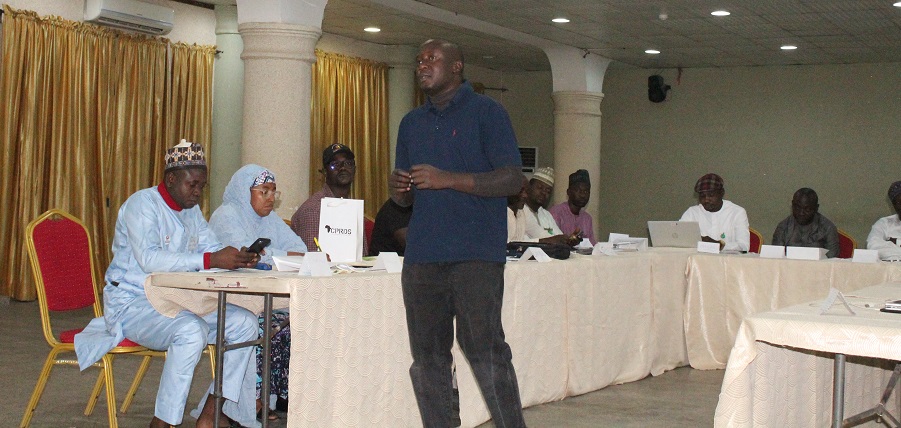Strengthening Civic Space: CPRDS’s Partnership Capacity Enrichment Initiative in Northern Nigeria

The Center for Policy Research & Development Solutions (CPRDS) recently launched a crucial initiative in partnership with Yardadua Foundation aimed at bolstering the monitoring and reporting capabilities of partners dedicated to protecting open civic space in the North East and North West regions of Nigeria. This initiative reflects our commitment to fostering an environment where civil society can thrive, free from threats and restrictions. The Challenge In recent years, the civic space in Northern Nigeria has faced numerous challenges. These include threats to freedom of expression, assembly, and association, exacerbated by ongoing conflict, political instability, and restrictive policies. Civil society organizations (CSOs) and activists in these regions often operate under significant pressure, with limited resources and support to effectively monitor and report these threats. The Initiative Recognizing these challenges, CPRDS embarked on a Partnership Capacity Enrichment initiative to enhance the skills and capabilities of local CSOs, human rights defenders, and community leaders. The objective was to empower them with the tools and knowledge needed to effectively monitor, document, and report threats to civic space, thereby promoting accountability and protection of fundamental rights. Key Activities 1. Capacity-Building Workshops The initiative kicked off with a series of intensive capacity-building workshops in key cities across the North East and North West regions. These workshops focused on: 2. Development of Monitoring Frameworks CPRDS collaborated with participants to develop tailored monitoring and reporting frameworks. These frameworks are designed to be adaptable to the unique contexts of different communities within the regions, allowing for consistent and accurate data collection and reporting. This collaborative process ensured that the frameworks were practical and directly applicable to the participants’ work. 3. Digital Tools Training In today’s digital age, leveraging technology is essential for effective monitoring and reporting. CPRDS provided training on various digital tools and platforms that can enhance data collection, analysis, and dissemination. This included: 4. Networking and Collaboration Forums To foster a collaborative approach to protecting civic space, CPRDS facilitated networking and collaboration forums. These forums provided a platform for participants to share experiences, discuss challenges, and develop joint strategies for monitoring and reporting threats. By strengthening these networks, the initiative aimed to create a more united and resilient civil society sector. Outcomes and Impact The Partnership Capacity Enrichment initiative has already yielded significant positive outcomes: Moving Forward CPRDS remains committed to supporting and strengthening the capacity of civil society in Northern Nigeria. We will continue to provide technical assistance, training, and resources to ensure that the progress made through this initiative is sustained and built upon. By empowering local actors and fostering a collaborative approach, we can help create a more open, secure, and resilient civic space in the region.
Empowering Borno State: CPRDS’s Technical Assistance and Capacity Strengthening Initiative

The Center for Policy Research & Development Solutions (CPRDS) is proud to highlight a significant initiative that embodies our commitment to sustainable development and resilience in conflict-affected regions. Recently, CPRDS conducted a comprehensive program focused on providing technical assistance and capacity strengthening for the Borno State Ministry of Reconstruction, Rehabilitation, and Resettlement (MRRR). Background Borno State, located in northeastern Nigeria, has faced significant challenges due to prolonged conflict and insurgency. These challenges have left deep scars on the region’s infrastructure, economy, and social fabric. The Borno State Ministry of Reconstruction, Rehabilitation, and Resettlement (MRRR) plays a pivotal role in addressing these challenges, working to rebuild communities, rehabilitate infrastructure, and resettle displaced populations. Recognizing the critical importance of enhancing the Ministry’s capacity to effectively carry out its mandate, CPRDS embarked on an initiative aimed at providing technical assistance and capacity-building support. Objectives of the Initiative The primary objectives of this initiative were to: Key Activities 1. Needs Assessment and Strategic Planning Workshop The initiative began with a comprehensive needs assessment to identify the specific challenges and gaps within the MRRR. This was followed by a strategic planning workshop where CPRDS experts worked closely with Ministry officials to develop a tailored action plan. The workshop focused on setting clear goals, identifying priority areas, and outlining strategies for achieving these goals. 2. Technical Training Sessions CPRDS organized a series of technical training sessions covering various aspects of project management, including: 3. Sustainable Development Workshops To promote long-term resilience, CPRDS conducted workshops on sustainable development practices. These workshops covered topics such as: 4. Stakeholder Engagement Forums Recognizing the importance of collaboration, CPRDS facilitated stakeholder engagement forums. These forums brought together representatives from international organizations, NGOs, and local communities to discuss ongoing projects, share best practices, and identify opportunities for collaboration
International Conference for African Traditional and Religious Leaders on Keeping Girls in School in Africa

In a significant stride towards enhancing education for girls in Africa, the Centre for Policy Research & Development Solutions (CPRDS) recently hosted the “International Conference for African Traditional and Religious Leaders on Keeping Girls in School in Africa.” Held over three days in Nigeria, this landmark event brought together a diverse assembly of leaders, educators, policymakers, and advocates to address the critical issue of girls’ education and retention in schools. Panel Discussions and Workshops The conference featured a series of panel discussions and workshops designed to foster dialogue and collaboration among participants. Key topics included: Moving Forward The conference concluded with a vibrant cultural evening, celebrating the rich heritage of Africa and the collective commitment to a brighter future for its girls. As participants returned to their communities, they carried with them a renewed sense of purpose and a toolkit of strategies to support girls’ education. The CPRDS remains dedicated to monitoring progress and providing ongoing support to ensure that the commitments made at the conference translate into tangible improvements in girls’ education across the Nation. By harnessing the collective power of traditional and religious leaders, we can make significant strides towards a future where every girl in Africa has the opportunity to stay in school and achieve her full potential.